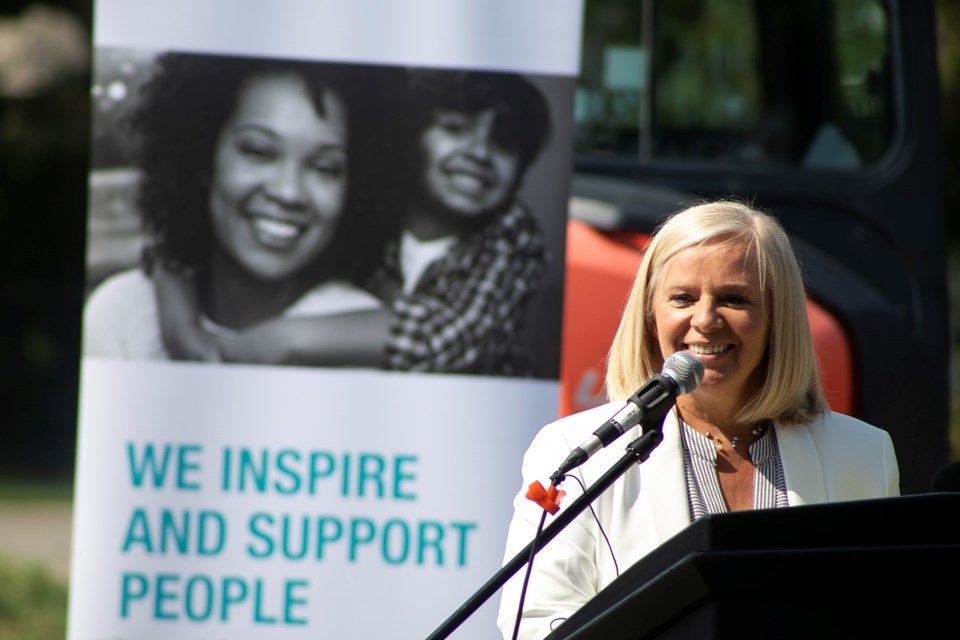Editor's note: Versions of this article originally appeared on StratfordToday, GuelphToday, and EloraFergusToday, local news sites operated by Village Media.
PERTH/WELLINGTON and STRATFORD — Mental health and addictions leaders in Southwestern Ontario say they weren't consulted on the province's plan to fund a private company to provide mobile mental health and addictions services in their region.
On June 13, the province announced Medavie Health Services will provide those supports out of a van that travels through the Huron-Bruce and Perth-Wellington regions.
A media release said the clinic will have a multidisciplinary team including a social worker, registered nurse or nurse practitioner who can provide a range of services or referrals operating five days per week in “set locations” not specified in the announcement.
“The new mobile clinic will make it easier to access high-quality mental health and addictions services by bringing the care closer to home – in the community,” a media release stated.
“Mobile clinics operate by having a clinical team that travels between communities, reducing the distance that people in rural communities have to go to find care and serving more people in the process.”
So far, five mobile mental health and addictions clinics have been launched and are delivering services to communities in Peterborough, Kenora, Niagara/Haldimand/Norfolk, Manitoulin Island and Hastings Prince Edward County.
But the leaders of the local branches of the Canadian Mental Health Association (CMHA) — a charitable mental health services provider funded by the province — say they weren’t consulted.
There’s no question more mental health services and funding are needed in the region, said Helen Fishburn, Canadian Mental Health Association Waterloo Wellington (CMHAWW) CEO.
However, this provincial announcement came as a surprise as Fishburn was not aware of it ahead of time.
“We’ve been really clear about the increases in volumes that we’ve experienced, overall about 40 per cent, since the pandemic … there’s no doubt that the need is there,” Fishburn said. “I think the part that is unfortunate is that when this new funding landed in the Goderich community and its serving many rural areas, there wasn’t any consultation with existing providers.”
Catherine Hardman, CEO of CMHA Huron-Perth, brought up similar concerns in an interview with StratfordToday.
"There was no consultation, absolutely zero about the nature of this," Hardman told StratfordToday. "We know the communities, we already have the partnerships, we know where our gaps are. If you are going to put (funding) into the system, then give it to a service that is already here, knows the community and has the partnerships to leverage that."
Hardman said she met Medavie president Eric Sande at the press event, who said he's looking forward to meeting with local providers and finding out where the gaps are.
"We know where the gaps are," Hardman said. "It's disappointing that they didn't choose to consult with us. I let (MPP Lisa Thompson) know that. I was clear with her that I was disappointed that (the funding) didn't go to a local provider. What would have been helpful is to have a conversation with us before the press conference."
Fishburn echoed that, saying she thinks CMHAWW could have been helpful in informing the province on what’s needed and would alleviate any questions or concerns the community might have about who provides what service and where this service covers.
“Final coverage area and boundaries will be decided by Medavie in consultation with the community,” said a spokesperson for the associate minister of mental health and addictions Michael Tibollo in an email. “It will become operational once renovations to the van and those community consultations are completed.”
While Fishburn would have ultimately preferred the province to fund building capacity through existing providers, she said rural communities will benefit from more care.
“Rural communities in particular struggle even more with isolation and connecting to care, you know, travel, geography, sometimes it takes somebody an hour to get to an appointment by car,” Fishburn said. “We welcome another rural provider, we welcome the opportunity for more care, we just really need some time to coordinate and collaborate.”
Requests for comment from Medavie Health Services were not returned.




